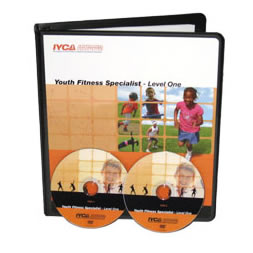Youth Fitness
“Fitness” in Early Childhood: Part I
This article is Part I of a series by Dr. Kwame M Brown. There will be more to come, including details about programming and resources for our members.
I spend all day around preschoolers and parents. We have a great preschool here at Lee District RECenter in Franconia, VA and the teachers here are all about play! I don’t regularly work formally with the preschool children, but interact with them and play little games with them throughout the day as they bang on my window, or I see them in the hall, or play hopscotch with them on the sidewalk outside. Our teachers are wonderful all by themselves and don’t really need me that much.
I am often asked how to do fitness programs for kids at this age. The answer I often give is that the programming is easy: Combine outdoor play (mostly) lots of pretend play and obstacle courses. For older toddlers, you can begin adding simple tag games, crawling or hopping relays, and very simple throw, catch and kick games. There are tons of great activities available on the web for this age group.
The hard part: the teaching!
With this group you have to be in equal parts:
- Understanding
- Engaged / Energetic
- Patient
- Creative
- Silly
- Uninhibited
- Authoritative (for safety only)
Running a fitness program for older children and teens is as much or slightly more about the personnel as the program. Running youth fitness programs for the preschool age is overwhelmingly about the personnel more than the program.
If you consider yourself a fitness professional, or a highly qualified coach, you may not be successful in running preschool program. If you, on the other hand, consider yourself a play partner, you can be incredibly successful. Kids will ask when they will see you again. My assistant and I have kids who run and jump into our arms when we see them! They know that we are having fun being with them. They know that we’re not there to get performance out of them, but to enjoy their play experiences alongside them.
Learn to Train Kids from 6 – 18 (Athletes & Non-Athletes Alike)…
…with the Youth Fitness Specialist – Level 1 certification


